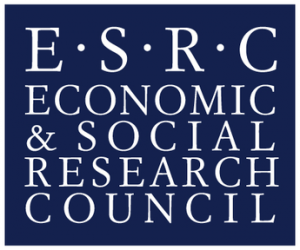Processes and practices of governing in Further Education colleges in the UK: investigating ‘boards in action’
An ESRC funded project led by the Universities of Stirling, Birmingham and Cardiff
Cate Watson cate.watson@stir.ac.uk
Why governing boards? Why further education? Why now?
This major ESRC funded research project on the processes and practices of governing is (as far as we know) the first of its kind to study ‘boards in action’ in further education colleges in the UK. This is the phrase Cadbury memorably used in his influential report on governance in which he said that,
the most useful field for further research would be into what goes on in boards…The more that research can concentrate on boards in action, on process rather than structure, the greater the chance that research findings will be operationally relevant and acted upon. (Cadbury, 2000, 12)
Cadbury therefore recognised what many people do not i.e that while there may be many normative claims as to what constitutes ‘good governance’, we simply do not know enough about what it is that governing boards actually do in realising the strategic aims of their respective organisations. There is an assumption that boards are necessary for the effective running of organisations of all kinds, but why this is so remains shrouded in mystery.
Of course, I am being a bit mischievous here, I certainly do not agree with a Scottish Minister (who had better remain nameless) at a recent conference on college governing who said that ‘the importance of college boards cannot be underestimated’. On the contrary, I am fully supportive of the work of boards. I do though think that our understanding of college governance will be enhanced if we ditch the assumptions and normative claims and actually focus on how governing is done by boards.
This is the gap this project addresses. We mean to examine the social, linguistic and material practices of boards through which governing is enacted. By observing the communicative interactions of board members, our aim is to investigate how boards produce and reproduce governance, and to answer the question, what kinds of organisation is/are being enacted through these processes and practices?
Here, we recognise ‘practice’ as the spatial dimension. Observation of board meetings allows us to ask, in what ways do governors ‘do’ governing in the context of the board meeting? ‘Process’, on the other hand, is necessarily temporal, it is about the strategy narratives that emerge, develop and fade over time and the technologies that shape and enable this.
The governing board meeting is the point at which process and practice meet. Certainly, many aspects of governance occur outwith the boardroom and both the institutional and wider policy contexts clearly have relevance to what goes on inside the boardroom. Our starting point though is that boards do not only or simply conduct their activities ‘within’ a contextual framework but in effect construct (make real) that contextual framework through their communicative interactions. So, although we are very interested in the ways in which policy and external contexts serve to position governance, the primary concern is how participants construct these contexts locally in and through their interactions and activities. Adopting this precept renders the external/policy context visible, thereby allowing us to analyse the ways in which the board is positioned in relation to the wider field.
But why further education as the focus of study? There are a number of reasons – both substantive and analytical – which make further education an ideal choice. To take the analytical side first. We are confident that our research will be of relevance to boards in a range of institutional contexts but what makes further education so interesting from our point of view is that the UK further education scene presents a unique crucible in which to explore the work of boards. First, the contested nature of what further education ‘is’ enables us to explore the different ways in which boards conceptualise and construct concepts of further education and how this impacts on their work. Second, further education in the UK is a dynamic and diverse sector, operating within a divergent and rapidly changing policy context, which nonetheless is characterised by a high degree of mutual interdependence.
This complexity is of interest in itself, but is also what underlies the substantive reason for the focus on further education. Further education is vital to the UK economy. Policy-makers are much exercised by the ‘skills gap’. If we are interested in how colleges realise their strategic aims then it is essential to understand better the contribution of the governing body, charged with shaping and steering the organisation, to this end.
…and why now? It’s hard not to fall into platitudes here, but as we are all aware the UK faces many difficult challenges – social, economic and environmental. We are confident that together with our participating colleges, this project will create knowledge that will be of use to the sector (and beyond). After all, the importance of further education in enabling us to address the challenges ahead cannot be overestimated.



